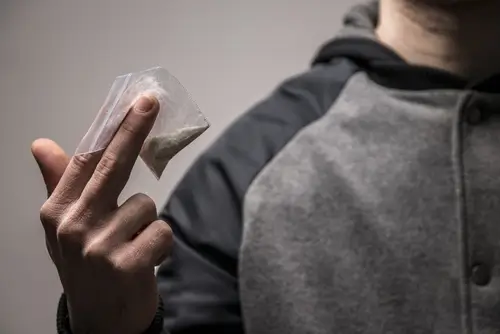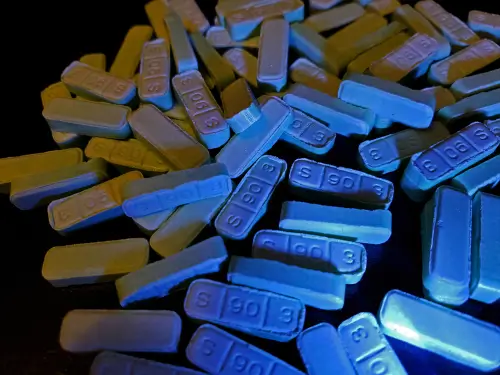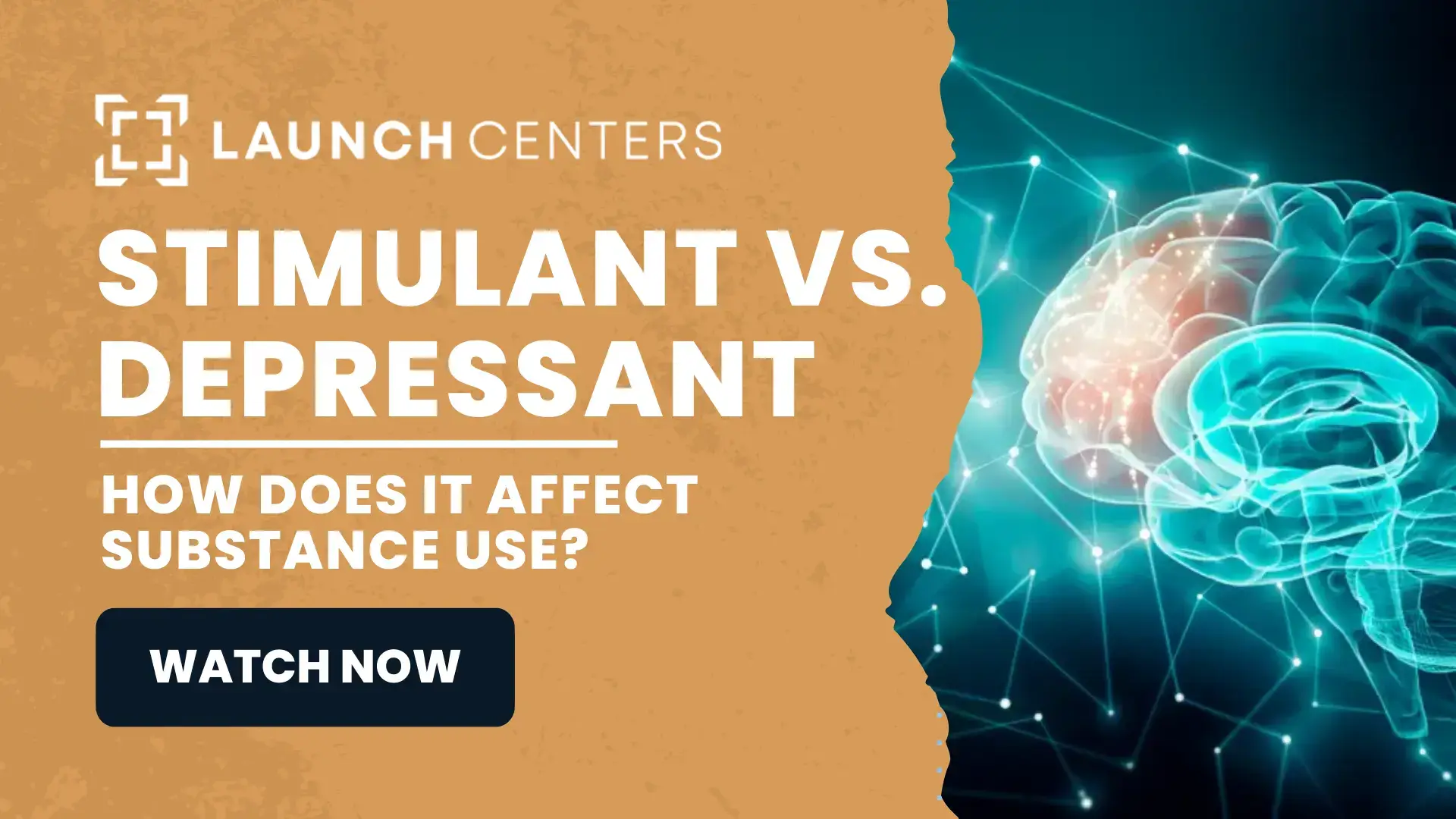Substance use is a one-way street that leads to destruction. Los Angeles, the world’s entertainment capital, is no stranger to substance use and addiction. One of the critical factors in substance use is the classification of the drug itself. Drugs can be broadly classified into two categories: stimulants and depressants.
Understanding the difference between stimulants and depressants is vital because they have opposing effects on the body and can impact an individual’s health and behavior differently. Understanding the differences can help individuals make informed decisions about their substance use and minimize potential harm.
- Stimulants amplify activity in the CNS (central nervous system) and elevate mood.
- Depressants are drugs that slow down activity in the central nervous system and cause relaxation and sedation.
Understanding the potential risks of using these substances, including addiction, overdose, and other negative health consequences, is also essential.
This article will explore the difference between stimulants and depressants and how they affect substance use.
Stimulant vs. Depressant
Substance use is a broad term that refers to any psychoactive substance. It can have a wide range of effects on an individual’s physical, emotional, and psychological health. It also leaves a deep impact on their overall quality of life as well as their relationships. While there are many addictive substances that people can become addicted to, stimulants and depressants are two of the most commonly used.
Stimulants
Stimulants are psychoactive substances that enhance the activity of the CNS (central nervous system), leading to increased alertness, energy, and concentration. They also increase dopamine, norepinephrine, and serotonin levels in the brain, the neurotransmitters responsible for mood, pleasure, and attention.

Examples
Some of the most commonly used stimulants include:
- Caffeine
- Nicotine
- Cocaine
- Ritalin
- Adderall
- Methamphetamine
Effects on the Body and Mind
The effects of stimulants vary depending on the substance and the dosage. Generally, stimulants increase blood pressure, body temperature, fatigue, and reduced appetite. They can also enhance cognitive and physical performance, increase talkativeness, and induce euphoria.
Risks Associated With Stimulant Use
Stimulant use can have several short-term and long-term risks. Long-term risks include:
- Anxiety
- Addiction
- Depression
- Cardiovascular issues
- Mental health issues
- Cognitive impairment
- Weakening of artery walls
- Ulcers and tears
- Inflammation of the heart muscle
Short-term risks include:
- Fatigue
- Anxiety
- Insomnia
- Agitation
- Seizures
- Depression
- Paranoia
- Inability to focus
Long-term Effects Of Stimulant Use
Long-term stimulant use can have several adverse effects on the body and brain. Prolonged use of amphetamines and cocaine can lead to changes in the brain’s reward system, making it harder for the individual to experience happiness and pleasure without the substance.
Chronic stimulant use can also lead to liver and kidney damage, cardiovascular problems, and respiratory issues. It can also increase the risk of developing mental health problems like psychosis, anxiety, and depression.

Depressants
Depressants are psychoactive substances that slow down the activity of the CNS (central nervous system), leading to reduced anxiety, relaxation, and sedation. They work by boosting the activity of GABA (gamma-aminobutyric acid), a neurotransmitter responsible for inhibiting the action of the brain.
Examples
Some of the most commonly used depressants include:
- Alcohol
- Heroin
- Valium.
- Xanax
- Opioids
- Barbiturates
- Amobarbital
- Phenobarbital
- Benzodiazepines
- Prescription painkillers
Effects On The Body And Mind
The effects of depressants vary depending on the substance and the dosage. Generally, depressants decrease heart rate, blood pressure, and respiration and induce feelings of relaxation and sedation. They can also impair cognitive and motor functioning and induce euphoria.
Risks Associated With Depressant Use
Depressant use can have several short-term and long-term risks.
- Long-term risks include:
- Addiction
- Mental health issues
- Cognitive impairment
- Depression and anxiety
- Liver and kidney damage
- Anxiety and panic attacks
- Short-term risks include:
- Unconsciousness
- Slowed breathing
- Confusion
- Memory problems
- Cold/clammy skin
- Impaired judgment
- No response to stimuli
- Snoring
Long-term Effects Of Depressant Use
Long-term depressant use can have several adverse effects on the brain and body. Prolonged use of depressants can change the brain’s reward system, making it harder for individuals to experience pleasure and happiness without the substance.
Chronic depressant use can also lead to cardiovascular problems, liver and kidney damage, and respiratory issues. It can also increase the hazards of developing mental health issues like psychosis, anxiety, and depression.

Differences Between Stimulants & Depressants
Stimulants and depressants have different effects on the body and mind. Stimulants raise the activity of the CNS, leading to increased heart rate, respiration, high blood pressure, reduced appetite, and fatigue. Depressants, on the other hand, slow down the activity of the CNS, leading to reduced heart rate, respiration, low blood pressure, and reduced anxiety and stress.
Why People Use Them
People use stimulants and depressants for different reasons.
- Stimulants are often used to increase alertness and energy levels, enhance cognitive and physical performance, and induce euphoria. They are also used to treat attention deficit hyperactivity disorder, obesity, and narcolepsy.
- Depressants often reduce anxiety and stress, induce relaxation and sedation, and alleviate pain. They are also used to treat anxiety disorders, insomnia, and seizures.
Stimulants and depressants have similarities in their risks and long-term effects, but also some differences.
Similarities: Both types of drugs can lead to addiction, cardiovascular problems, liver and kidney damage, mental health issues like depression and anxiety, and cognitive impairment.
Differences: Stimulants can lead to anxiety, agitation, insomnia, paranoia, and seizures, while depressants can lead to drowsiness, confusion, impaired coordination, and respiratory depression.
While stimulants and depressants have different effects on the body and mind, they carry significant risks and long-term effects. It is vital to be aware of these risks and to seek assistance if you or your loved ones are struggling with addiction.
How Does It Affect Substance Use?
Stimulants in Substance Use
Stimulants can play a significant role in substance use. They can increase the pleasurable effects of other drugs, such as alcohol and opioids, and reduce the harmful effects of withdrawal symptoms.
Stimulants can also counteract the sedative effects of depressants and allow people to continue using other drugs for longer periods. For example, cocaine is often used with alcohol or opioids to counteract the depressive effects of these drugs, while amphetamines are used to offset the sedative effects of benzodiazepines.
Depressants In Substance Use
Depressants can also play a significant role in substance use. They are often used to enhance the effects of other drugs, such as opioids, and reduce the harmful effects of withdrawal symptoms.
Depressants can also be used to self-medicate mental health problems like anxiety and depression, leading to dependence and addiction. For example, benzodiazepines are often used with opioids to enhance their pain-relieving effects, while alcohol is used to self-medicate anxiety and depression.
How Do Stimulants & Depressants Affect Addiction?
Both stimulants and depressants can play a significant role in substance use and addiction. Understanding the risks associated with these drugs and seeking help if you are struggling with substance use or addiction is vital.
Stimulants and depressants can increase the risk of developing an addiction. Both can cause alteration in the brain’s reward system, leading to an increased risk of dependence and addiction. They can also cause cravings and withdrawal symptoms, which can make it challenging to quit using the drug.
For several reasons, understanding the role of stimulants and depressants in substance use is vital.
- Firstly, it can help individuals understand the risks of substance use and make informed decisions about their drug use.
- Secondly, it can help healthcare professionals develop effective treatment plans for individuals with substance use disorders.
- Thirdly, it can help prevent overdoses and other negative consequences of substance use by providing individuals with accurate information about the risks of mixing different types of drugs.

Substance Use Treatment At Launch Centers In Los Angeles
Launch Centers is a leading substance use treatment center in Los Angeles, CA, that offers a range of treatment programs, including residential, outpatient, and intensive outpatient programs. Our residential program provides a safe and supportive environment for individuals to detox and begin their recovery journey. Our outpatient programs allow individuals to receive treatment while maintaining their daily routines and responsibilities.
If you or your loved ones are struggling with substance use, don’t hesitate to contact Launch Centers for help. Our compassionate and experienced team is here to support you every step of the way on your recovery journey.
Contact us today to learn more about our treatment programs and to schedule a free consultation.






